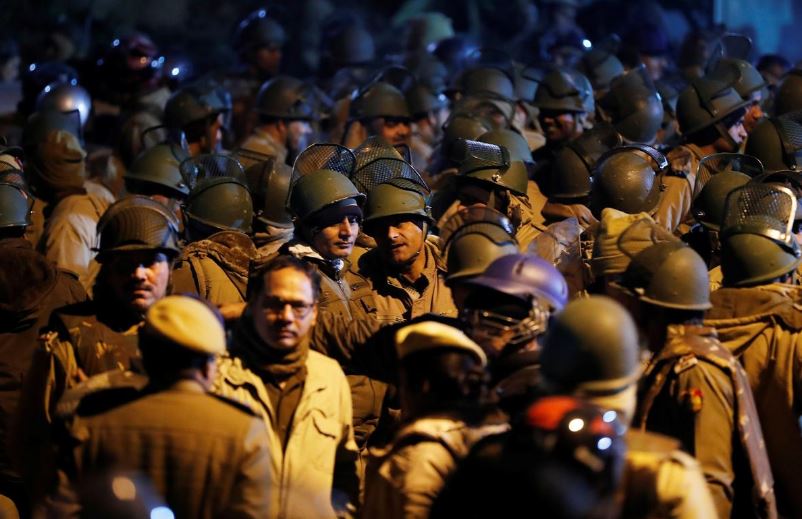Sunday’s attack at a university, long seen as a bastion of left-wing politics, comes as students nationwide lead a campaign against a citizenship law introduced last month by Prime Minister Narendra Modi that is seen as targeting Muslims.
“Social media and CCTV footage will be part of the investigation,’’ said Police Official Devendra Arya, adding that the violence at the university had prompted police to start a case.
Students and some faculty of the Jawaharlal Nehru University have blamed the incident that injured at least 30 people on a students’ union tied to Modi’s Bharatiya Janata Party, which has increasingly targeted the institution.
Students put out pictures of mobs entering university residential halls, their faces covered with cloth, carrying sticks and even sledgehammers.
Some shouted slogans, threatening death for traitors.
More than 30 injured were admitted to the All-India Institute of Medical Science in the capital, a hospital official said, most of them with lacerations, cuts and bruises.
The protests have persisted despite government efforts to quell them, with more protests planned across India on Monday, prompted by the university attack.
The Akhil Bharatiya Vidyarthi Parishad, the students’ wing of the BJP, denied accusations that it was behind the attack, which it blamed instead on rival leftist unions.
Authorities faced criticism for failing to rein in the violence on campus viewed as a centre of resistance to Modi’s policies, including the abolition last year of special status for Muslim-majority Kashmir.
Rahul Mehra, a lawyer for the Delhi Police, said he was astounded there were no police officials to stop Sunday’s attack.
“I…hang my head in shame after witnessing video clips of goons merrily entering JNU campus, creating mayhem and grievously injuring innocent students, damaging public property and then exiting the campus,’’ he said on Twitter.
Critics accuse Modi of pushing a Hindu-first agenda that undermines India’s foundations as a secular democracy.
The citizenship law lays out a path for Indian nationality for minorities from six religious groups in neighbouring countries but excludes Muslims.
The government says the law is meant to tackle the grievances of minorities such as Christians, Hindus and Sikhs, who face persecution in Afghanistan, Bangladesh and Pakistan.

